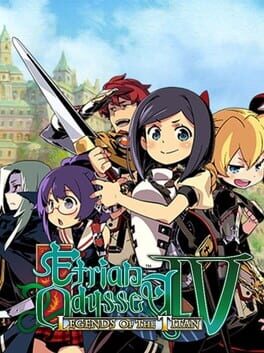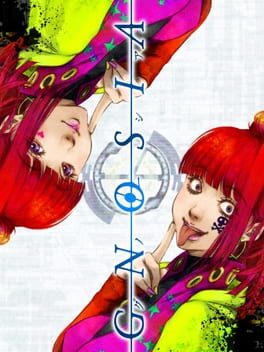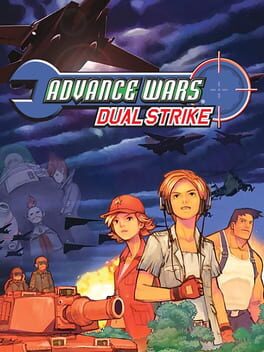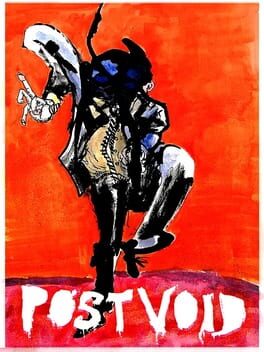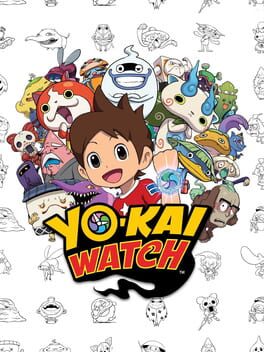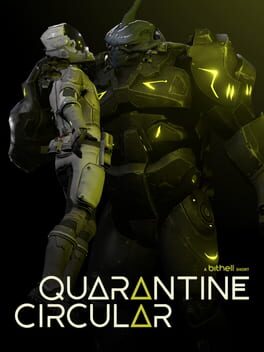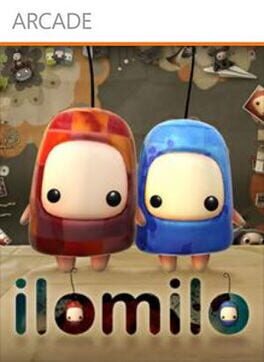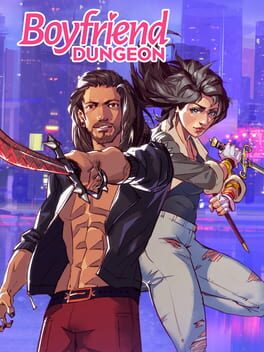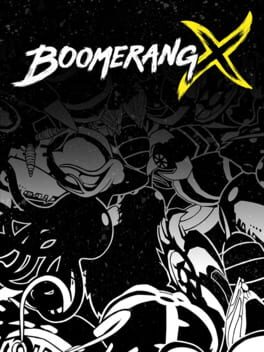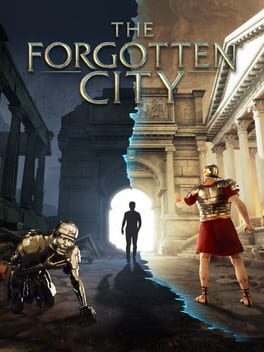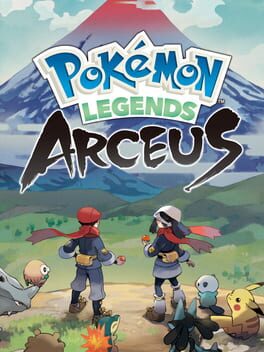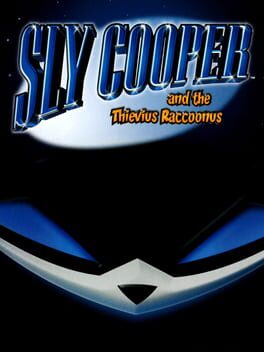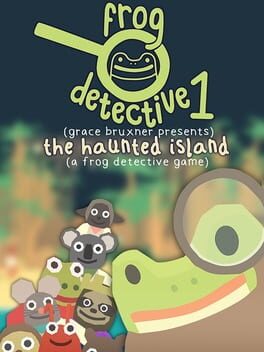LordTentacle69
This one goes out to all my smug poindexters with fake Jordans 😤
Etrian Odyssey IV turns its gameplay from a marathon to a sprint, which in turn manages to completely change how you interact with the world there within. The first three EO games had a strong element of survival to them, when your guild begins they must first learn enough on how to survive before moving through the labyrinth and ultimately conquering the challenges placed before them. Much of it is about the conservation of resources, stretching your TP out across as many floors as you can while you explore and grow stronger.
EO IV is much more interested in you being an important adventurer than as a survivor turned hero. Labyrinths are short and much of your time is spent in small 1 floor caves with unique enemies and rewards to run through. The amount of TP you have doesn’t matter all that much, conservation is nice but unless you’re planning on challenging the boss then there’s no reason not to use your strongest attacks in every fight with how frequent shortcuts become.
To be clear, this is fun! Much of the time you spend developing your characters skills outside of combat allows you to really pull out consistently intricate strategies against even the most plain of monsters. The synergies between characters feel like they come out much more often than if those moves were only saved for the boss fights. The boss fights too were incredible (in the first half), really blending the understanding of navigation for each labyrinth along with very unique and difficult challenges. Still I do not prefer it to much of the rest of the series.
You see I'd love to write a soliloquy of the Twinkies' adventures but their job felt more destined than earned. It took less than a month for the guild to become the most prominent adventurers in the entire city of Tharsis. There was no pressure put on the guild, they just took their time and explored the uncharted lands piece by piece.
It was rigorous, but not challenging. Every victory was an inevitability, right down to defeating the Titan itself. There’s certainly satisfaction in these accomplishments, the Twinkies was certainly gassed up as the GOAT quick, but we more so completed tasks handed to us than really pushed to accomplish more than was expected.
The Twinkies came, they saw, they conquered. It was an enjoyable romp, though Kanada’s decisions feel built for a different series than Etrian Odyssey.
Etrian Odyssey IV turns its gameplay from a marathon to a sprint, which in turn manages to completely change how you interact with the world there within. The first three EO games had a strong element of survival to them, when your guild begins they must first learn enough on how to survive before moving through the labyrinth and ultimately conquering the challenges placed before them. Much of it is about the conservation of resources, stretching your TP out across as many floors as you can while you explore and grow stronger.
EO IV is much more interested in you being an important adventurer than as a survivor turned hero. Labyrinths are short and much of your time is spent in small 1 floor caves with unique enemies and rewards to run through. The amount of TP you have doesn’t matter all that much, conservation is nice but unless you’re planning on challenging the boss then there’s no reason not to use your strongest attacks in every fight with how frequent shortcuts become.
To be clear, this is fun! Much of the time you spend developing your characters skills outside of combat allows you to really pull out consistently intricate strategies against even the most plain of monsters. The synergies between characters feel like they come out much more often than if those moves were only saved for the boss fights. The boss fights too were incredible (in the first half), really blending the understanding of navigation for each labyrinth along with very unique and difficult challenges. Still I do not prefer it to much of the rest of the series.
You see I'd love to write a soliloquy of the Twinkies' adventures but their job felt more destined than earned. It took less than a month for the guild to become the most prominent adventurers in the entire city of Tharsis. There was no pressure put on the guild, they just took their time and explored the uncharted lands piece by piece.
It was rigorous, but not challenging. Every victory was an inevitability, right down to defeating the Titan itself. There’s certainly satisfaction in these accomplishments, the Twinkies was certainly gassed up as the GOAT quick, but we more so completed tasks handed to us than really pushed to accomplish more than was expected.
The Twinkies came, they saw, they conquered. It was an enjoyable romp, though Kanada’s decisions feel built for a different series than Etrian Odyssey.
2019
Bawling my eyes out about the he/she/they shawties you don't get to bang after the hundred plus loops 😭
If we're being real though this one of the most expertly crafted and designed experiences I've seen out of the indie scene for a minute. Every step of the way you learn about a system of rules and characters, which in turn you are given the tools to perturb the system to move in your favor. At first it plays the hidden role gameplay straight so you can learn the roles and understand the AI. Over time though you learn how to predict the AI, and can move things in your favor easier and easier. The more you play the more you learn but it never gets repetitive because the whole system of AI is carefully balanced to create incredible variety loop to loop.
The challenges are simple until you hit about the mid game, where the goal is often not to win the individual rounds of Werewolf but to instead focus on smaller more unique objectives. Ensuring certain characters survive or trying to eliminate particular targets early, things that exist outside the typical win state/fail state mentality built up in the beginning. One of my favorites is when playing as the killer, you have to make sure the only people who survive are you and a specific crew mate. In order to do so you must eliminate everyone else, teammates included. All these challenges are met with small underlying changes that never make it unfair to get your desired outcome, yet can pull the most out of your understanding of the group and their behaviors.
In many ways a peak science game where using the scientific method will lead you to the fullest understanding of the game and allowing you to perform at ease. Legit I could probably write a grad paper on how this game uses cognitive behavioral theory so competently but they ain't paying me to do that.
On the other hand, the unfortunate part in all this is the narrative is little more than self agrandizing fluff. There's nothing here that uses the sci-fi setting well. You spend lots of time learning about characters but only as a service for useless trivia that only occasionally feeds back into the gameplay. Most of the story plays around different scenes where the extremely anti-social protagonist gets flirted with by people of all genders then treats these same people as nothing more than pieces in the game to win. The repeating patterns give such a dissociative feel to the narrative the scenes meant to evoke an emotional response feel empty. They definitely could've done something with this but in the end it focuses on romantic tragedies and pointless, unanswered questions. C'est la vie I guess.
Overall though the game is hella magnificent. From top to bottom cleanly designed with only a rare few rough patches. Plus you can live out your pansexual fantasy, and what other game gives you that?
If we're being real though this one of the most expertly crafted and designed experiences I've seen out of the indie scene for a minute. Every step of the way you learn about a system of rules and characters, which in turn you are given the tools to perturb the system to move in your favor. At first it plays the hidden role gameplay straight so you can learn the roles and understand the AI. Over time though you learn how to predict the AI, and can move things in your favor easier and easier. The more you play the more you learn but it never gets repetitive because the whole system of AI is carefully balanced to create incredible variety loop to loop.
The challenges are simple until you hit about the mid game, where the goal is often not to win the individual rounds of Werewolf but to instead focus on smaller more unique objectives. Ensuring certain characters survive or trying to eliminate particular targets early, things that exist outside the typical win state/fail state mentality built up in the beginning. One of my favorites is when playing as the killer, you have to make sure the only people who survive are you and a specific crew mate. In order to do so you must eliminate everyone else, teammates included. All these challenges are met with small underlying changes that never make it unfair to get your desired outcome, yet can pull the most out of your understanding of the group and their behaviors.
In many ways a peak science game where using the scientific method will lead you to the fullest understanding of the game and allowing you to perform at ease. Legit I could probably write a grad paper on how this game uses cognitive behavioral theory so competently but they ain't paying me to do that.
On the other hand, the unfortunate part in all this is the narrative is little more than self agrandizing fluff. There's nothing here that uses the sci-fi setting well. You spend lots of time learning about characters but only as a service for useless trivia that only occasionally feeds back into the gameplay. Most of the story plays around different scenes where the extremely anti-social protagonist gets flirted with by people of all genders then treats these same people as nothing more than pieces in the game to win. The repeating patterns give such a dissociative feel to the narrative the scenes meant to evoke an emotional response feel empty. They definitely could've done something with this but in the end it focuses on romantic tragedies and pointless, unanswered questions. C'est la vie I guess.
Overall though the game is hella magnificent. From top to bottom cleanly designed with only a rare few rough patches. Plus you can live out your pansexual fantasy, and what other game gives you that?
To love Advance Wars is to embrace its jagged edges, to celebrate the insanity of imbalance and rubber banding in a game about "strategy" and "thinking". Intelligent systems realized this for Dual Strike, and broke every rule imaginable.
Double turns?
Yup.
Switching between CO's in order to cancel out any resemblance of drawbacks they may have once had?
Booyah
Giving characters skills so that the imbalance is extenuating beyond the point of no return?
Yaaaas
It's a busted mess that turns the PvE section into a challenge to see how badly you can break every rule. Missions end with 50 units that you only payed for a quarter of, as you slowly cover the AIs screen til there's nowhere left for them to build.
I have not played PvP and for all I could know that may bend the rules too much into unfun territory, but as far as PvE goes its an orchestrated mess that leaves an impeccable impression.
Double turns?
Yup.
Switching between CO's in order to cancel out any resemblance of drawbacks they may have once had?
Booyah
Giving characters skills so that the imbalance is extenuating beyond the point of no return?
Yaaaas
It's a busted mess that turns the PvE section into a challenge to see how badly you can break every rule. Missions end with 50 units that you only payed for a quarter of, as you slowly cover the AIs screen til there's nowhere left for them to build.
I have not played PvP and for all I could know that may bend the rules too much into unfun territory, but as far as PvE goes its an orchestrated mess that leaves an impeccable impression.
2020
In the strangest and most unrelatable way imaginable this game feels reminiscent of the stuffy record shops I frequented with my dad in East Atlanta in the early 00s. Walls lined with grotesque album covers like Sum 41's "Does This Look Infected?". A strange world I could not fathom, yet it was covered, no bursting with a slice of the essence of human art and expression. Mixed with a musty scent of old carpeting and cigarettes.
Post Void's chaotic dada-esque rebellion against sense is still so clearly a creation and manifestation of the human consciousness. Ultraviolent as a means of catharsis and escapism. It ensnares you in itself, only ending with a small creation of life as a freedom from the insanity.
Post Void's chaotic dada-esque rebellion against sense is still so clearly a creation and manifestation of the human consciousness. Ultraviolent as a means of catharsis and escapism. It ensnares you in itself, only ending with a small creation of life as a freedom from the insanity.
2013
The first thing to admit here is that Yo Kai Watch is not a good monster tamer. Yo Kai are essentially random drops that you have to hunt for and likely will not obtain on a consistent basis. Having to check under every single car in an area to find the one Yo Kai you are looking for only for it to die without joining you creates so much conflict between the player and the expectations of a monster tamer that friction is inevitable. Yo Kai Watch treats collecting monsters like it is a passive process, or perhaps like a mobile game where you have to keep spinning in order to obtain a desirable outcome. The iconography of the Gatcha machine is frequent in this world so it's not hard to see the connection.
Of course with that being said perhaps that is not the best way to criticize Yo Kai Watch. The game is very intent on being a passive experience, and the combat holds an enjoyable novelty because of that. You are given a very large amount of usable Yo Kai through the story anyhow, there's no expectation placed on the player to obtain specific Yo Kai in the wild. The only active element in obtaining new Yo Kai is through figuring out their favorite food and trying to manipulate the RnG to go in your favor with that knowledge. So where does that leave us?
Realistically Yo Kai Watch is at its best when it is a game about the lackadaisical carefree world of a child in the Summer. One where going to downtown Tokyo and stopping some spirits from causing people to forget where they put their keys is todays big adventure. The obvious attempt at merchandising that Level 5 did to treat this as a hallmark children's anime and merchandise line does give the game its own charm. The most true to the spirit game about living the childhood power fantasy that so many of those Slice of Life shows portray.
It's pleasant in that way, though likely to be held up as such since Boku no Yatsumi has never been translated out here in the West. I find the game to be... decent overall. The charms here are nice to talk about, but never really engaged me on any personal level. The friction that was often set in when I tried to acquire the Yo Kai I liked the designs of and was met with frequent, hours lasting failure. The direct sequel (which was released exactly 364 days after the first game) is more refined and palatable, but it's the same schtick pretty much.
Of course with that being said perhaps that is not the best way to criticize Yo Kai Watch. The game is very intent on being a passive experience, and the combat holds an enjoyable novelty because of that. You are given a very large amount of usable Yo Kai through the story anyhow, there's no expectation placed on the player to obtain specific Yo Kai in the wild. The only active element in obtaining new Yo Kai is through figuring out their favorite food and trying to manipulate the RnG to go in your favor with that knowledge. So where does that leave us?
Realistically Yo Kai Watch is at its best when it is a game about the lackadaisical carefree world of a child in the Summer. One where going to downtown Tokyo and stopping some spirits from causing people to forget where they put their keys is todays big adventure. The obvious attempt at merchandising that Level 5 did to treat this as a hallmark children's anime and merchandise line does give the game its own charm. The most true to the spirit game about living the childhood power fantasy that so many of those Slice of Life shows portray.
It's pleasant in that way, though likely to be held up as such since Boku no Yatsumi has never been translated out here in the West. I find the game to be... decent overall. The charms here are nice to talk about, but never really engaged me on any personal level. The friction that was often set in when I tried to acquire the Yo Kai I liked the designs of and was met with frequent, hours lasting failure. The direct sequel (which was released exactly 364 days after the first game) is more refined and palatable, but it's the same schtick pretty much.
2018
2012
2021
This is not a rougelike. While there are procedurally generated dungeons (2 in total) this lacks anything that remotely resembles run-based game design.
After the first combat encounter you will be quickly defeated in the dungeon that "represents your fears" to learn that there is a concrete leveling system separate from the relationship levels with each weapon. This player level represents both your offense and defense in every combat encounter, regardless of weapon. Meaning there is no skill involved in combat, it is simply a game of numbers.
Everything becomes trivial with time, strategy is the same regardless of weapon, and the only satisfying part of combat is to see the numbers go up.
Of course the trick is that you only level up when you leave the dungeon... and you can only level up your weapon relationships outside the dungeon...
The only way the developer feels like they can get the player to both engage with both the dungeon side as well as the dating side outside of the dungeon is to force them to leave the combat side regularly in order to go date.
This game is an Action RPG, and not a particularly good one at that. There is nothing that changes between trips to the dungeon except for a few floor shakeups, combat is busywork and only varies with enemy design, and every relationship skill is pretty much meaningless. Boyfriend Dungeon is simply a loose collection of ideas tied together by some lite game design knowledge as well as a high concept that's hardly explored.
There's a "Boyfriend" game here, as well as a "Dungeon" game, but the connecting systems feel loose at best. Sure, the only way you can move forward the "Boyfriend" sections is to level up your relationships in the "Dungeon" section, but if it weren't for the final boss requiring a maxed out "Boyfriend" you could just completely ignore half of the game and get by just fine. Boyfriend Dungeon wears many inspirations on its sleeve but fails to recognize how games like Persona use multiple systems to incentivize the player into Wanting to engage with the text in its entirety.
I could go through and analyze all the boringness that is the "Boyfriend" part of this game, but honestly there's not much to say. It's schlocky and, no cap, I skipped a lot of dialogue.
At the end of the day I still enjoyed the game. A couple of the romances were fun, and the game hit enough of my dopamine centers to help me ignore my anxiety and stress for a few hours.
Not much that you could write on though tbh, I will probably just forget about it in a few days.
Also the controversy here is silly. I get it's easy for some LGBT+ twitter communities to devour media people who are perceived of pandering/not doing enough, but come on the stalker warning was there from the beginning. I can see people being upset with the treatment of the theme of stalking in the narrative, but no need to censor bad media ya know.
After the first combat encounter you will be quickly defeated in the dungeon that "represents your fears" to learn that there is a concrete leveling system separate from the relationship levels with each weapon. This player level represents both your offense and defense in every combat encounter, regardless of weapon. Meaning there is no skill involved in combat, it is simply a game of numbers.
Everything becomes trivial with time, strategy is the same regardless of weapon, and the only satisfying part of combat is to see the numbers go up.
Of course the trick is that you only level up when you leave the dungeon... and you can only level up your weapon relationships outside the dungeon...
The only way the developer feels like they can get the player to both engage with both the dungeon side as well as the dating side outside of the dungeon is to force them to leave the combat side regularly in order to go date.
This game is an Action RPG, and not a particularly good one at that. There is nothing that changes between trips to the dungeon except for a few floor shakeups, combat is busywork and only varies with enemy design, and every relationship skill is pretty much meaningless. Boyfriend Dungeon is simply a loose collection of ideas tied together by some lite game design knowledge as well as a high concept that's hardly explored.
There's a "Boyfriend" game here, as well as a "Dungeon" game, but the connecting systems feel loose at best. Sure, the only way you can move forward the "Boyfriend" sections is to level up your relationships in the "Dungeon" section, but if it weren't for the final boss requiring a maxed out "Boyfriend" you could just completely ignore half of the game and get by just fine. Boyfriend Dungeon wears many inspirations on its sleeve but fails to recognize how games like Persona use multiple systems to incentivize the player into Wanting to engage with the text in its entirety.
I could go through and analyze all the boringness that is the "Boyfriend" part of this game, but honestly there's not much to say. It's schlocky and, no cap, I skipped a lot of dialogue.
At the end of the day I still enjoyed the game. A couple of the romances were fun, and the game hit enough of my dopamine centers to help me ignore my anxiety and stress for a few hours.
Not much that you could write on though tbh, I will probably just forget about it in a few days.
Also the controversy here is silly. I get it's easy for some LGBT+ twitter communities to devour media people who are perceived of pandering/not doing enough, but come on the stalker warning was there from the beginning. I can see people being upset with the treatment of the theme of stalking in the narrative, but no need to censor bad media ya know.
2021
Very fun idea that kind of wears on you towards the end. I'm relatively new to movement shooters so I end up making a lot of mistakes, which while normally not bad is frustrating due to the Boomerang X's overall messy UI with too many particle effects. The final boss in particular took me a long time to actually finish simply because the edges of the arena deal damage but it was hard to tell if I was flying into them or not. Good idea, execution desires more.
2021
This review contains spoilers
An interesting high concept of course, but it feels hard to be content with much of the results. The style of the game most reminds me of last year's Paradise Killer except while the core area is nice to look at there's no further aesthetic elements to appreciate after your first run through of the city. Gameplay almost always boils down to running to one part of the city to talk to someone to unlock another conversation with someone else in a different part of the city. I find this cathartic and enjoyable to an extent but it's checklist-like charm wears off after a couple of hours. Perhaps this is why they introduced combat though I really wish they didn't. This says nothing for the bugs and extended loading screens that all feel like a vestigial structure of the game's Skyrim roots, but in some of the most disruptive and unenjoyable ways especially towards the end of the game when you simply want to travel quickly from A to B to finish the game.
As for the meat and potatoes of the narrative, the meandering exploration works really well for a while. The concepts of critiquing moral relativism and the ideas that cultures build morals and lore upon themselves are really well explored and explained through multiple smaller conflicts that occur throughout the city. This makes exploration and questing feel like it's truly adding something to your experience with the text... until the main narrative really kicks in. Once most of the core conflicts are resolved and you've learned all you can about the Romans, the Greeks, the Christians, the Egyptians and how all their cultures intersect and build upon one another, all you've got left is abjectly evil characters and Ancient Aliens shenanigans. The game fails to cement any of it's ideas by actively cheapening the idea of using religion as a method of cultural transmission with the statement that Evil Aliens have been behind the conflict the whole time. Beyond that multiple characters commit heinous actions such as unjustified imprisonment and swindling people out of their money leading to them going into indentured servitude. I managed to defeat Pluto by threatening to kill his wife for Christ's sake!
I never got the impression that the team of 3 behind this has any faith in humanity or the good in them. It seems that the only things humans are capable of is avoiding sin, not doing good. This makes reflecting on the game hard to stomach, no real antithesis to these ideas ever comes up even though the narrative hinges on having likable/good characters. On of the most villainous characters becomes tortured for eternity in the true ending and the best counter to that the game gives is a good ol' "agree to disagree".
At the end of the day there are ideas here that will stick with me for a while and transform how I think about how culture changes and adapts. There's a good flavor here that revels in growing knowledge through gameplay that I love. However, between the overwhelming pessimism and the massive amounts of technical issues, there permeates a stench around this game I feel is hard to shake.
As for the meat and potatoes of the narrative, the meandering exploration works really well for a while. The concepts of critiquing moral relativism and the ideas that cultures build morals and lore upon themselves are really well explored and explained through multiple smaller conflicts that occur throughout the city. This makes exploration and questing feel like it's truly adding something to your experience with the text... until the main narrative really kicks in. Once most of the core conflicts are resolved and you've learned all you can about the Romans, the Greeks, the Christians, the Egyptians and how all their cultures intersect and build upon one another, all you've got left is abjectly evil characters and Ancient Aliens shenanigans. The game fails to cement any of it's ideas by actively cheapening the idea of using religion as a method of cultural transmission with the statement that Evil Aliens have been behind the conflict the whole time. Beyond that multiple characters commit heinous actions such as unjustified imprisonment and swindling people out of their money leading to them going into indentured servitude. I managed to defeat Pluto by threatening to kill his wife for Christ's sake!
I never got the impression that the team of 3 behind this has any faith in humanity or the good in them. It seems that the only things humans are capable of is avoiding sin, not doing good. This makes reflecting on the game hard to stomach, no real antithesis to these ideas ever comes up even though the narrative hinges on having likable/good characters. On of the most villainous characters becomes tortured for eternity in the true ending and the best counter to that the game gives is a good ol' "agree to disagree".
At the end of the day there are ideas here that will stick with me for a while and transform how I think about how culture changes and adapts. There's a good flavor here that revels in growing knowledge through gameplay that I love. However, between the overwhelming pessimism and the massive amounts of technical issues, there permeates a stench around this game I feel is hard to shake.
2021
When I began Metroid Dread one of the main things that stuck out for me was the immense amount of friction I felt between my desire to explore and the game design telling me to follow the path. A lot of people are comparing Dread to Metroid Fusion but fundamentally their flavor of linearity is vastly different. Fusion will lock you into specific areas to explore that you can look for the objective, or take time to look for side objectives that you can grab or will be able to grab later when you come back with more powers.
In Dread, once one path opens up the gate behind you shuts and won't open again until much later in the game. Mind you, I don't mean area to area, I mean room to room. A majority of the time there are switches that must be hit that will change the environment such as pushing blocks or changing energy flow. These decisions can never be reversed and will often lock you out of rooms you were just in for hours until the games lets you off its leash for a bit. Specifically this only lets up once around the midpoint point of the game (after defeating the 4th EMMI) and for the last stage while getting ready for the final area.
Like I said before, I find this frustrating. When given the movement tools like you are given with Dread I want to spend time searching to find small upgrades and environmental puzzles. I would always try and explore when I got a new ability but the only way open to me was the correct direction.
The core path is still fun with some particular high points like the 8th boss and unlocking the gravity suit, but it feels like they sacrificed an immense amount of freedom to make sure you NEVER get lost.
Quick side note on the bosses, I found most to be boring. 2D bossfights are hard to make well, just ask Retro Studios, but most of these felt boring/uninspired. Rather than relying on actual skill in the combat, most bosses just obscured their weakness/attack patterns so you have to waste time until you figure them out. The best bosses will still require you to put in work and effort after figuring out their patterns (just see boss #8 in the game), but most of the bosses in Dread are trivialized once you figure out what you're supposed to do. Most are closer to a Super Meat Boy boss rather than say a Hollow Knight boss.
As for the story, everything here is bunk. Metroid was never known for particularly great storytelling, but before there was a heart and soul in reflecting on the morality of killing an entire species just to stop other intelligent beings from weaponizing it. Now the story is all about Samus and her backstory, which is the exact great idea that Other M used to carry it's plot.
Here in the year 2021 technology has gotten to the point where we can completely eradicate the most deadly animal on earth, mosquitoes, simply by releasing a small genetic mutation in just a tiny fraction of the total population. You would hope following the grim themes on human intervention from Fusion that Dread would have even the slightest discussion on the real world issues and ethics that have come up in the past two decades since it's release, but I was probably just hoping for too much.
At the end of the day, Dread plays well and was fun enough to go through, but it lacks the soul of
its predecessors. Better than the worst of the series, worse than the best of the series. More polished than your average indie Search Action game but also 3x as expensive.
In Dread, once one path opens up the gate behind you shuts and won't open again until much later in the game. Mind you, I don't mean area to area, I mean room to room. A majority of the time there are switches that must be hit that will change the environment such as pushing blocks or changing energy flow. These decisions can never be reversed and will often lock you out of rooms you were just in for hours until the games lets you off its leash for a bit. Specifically this only lets up once around the midpoint point of the game (after defeating the 4th EMMI) and for the last stage while getting ready for the final area.
Like I said before, I find this frustrating. When given the movement tools like you are given with Dread I want to spend time searching to find small upgrades and environmental puzzles. I would always try and explore when I got a new ability but the only way open to me was the correct direction.
The core path is still fun with some particular high points like the 8th boss and unlocking the gravity suit, but it feels like they sacrificed an immense amount of freedom to make sure you NEVER get lost.
Quick side note on the bosses, I found most to be boring. 2D bossfights are hard to make well, just ask Retro Studios, but most of these felt boring/uninspired. Rather than relying on actual skill in the combat, most bosses just obscured their weakness/attack patterns so you have to waste time until you figure them out. The best bosses will still require you to put in work and effort after figuring out their patterns (just see boss #8 in the game), but most of the bosses in Dread are trivialized once you figure out what you're supposed to do. Most are closer to a Super Meat Boy boss rather than say a Hollow Knight boss.
As for the story, everything here is bunk. Metroid was never known for particularly great storytelling, but before there was a heart and soul in reflecting on the morality of killing an entire species just to stop other intelligent beings from weaponizing it. Now the story is all about Samus and her backstory, which is the exact great idea that Other M used to carry it's plot.
Here in the year 2021 technology has gotten to the point where we can completely eradicate the most deadly animal on earth, mosquitoes, simply by releasing a small genetic mutation in just a tiny fraction of the total population. You would hope following the grim themes on human intervention from Fusion that Dread would have even the slightest discussion on the real world issues and ethics that have come up in the past two decades since it's release, but I was probably just hoping for too much.
At the end of the day, Dread plays well and was fun enough to go through, but it lacks the soul of
its predecessors. Better than the worst of the series, worse than the best of the series. More polished than your average indie Search Action game but also 3x as expensive.
Is catching Pokemon fun? This is sort of a Rorschach test of a question, but hear me out. The point of catching Pokemon is most aptly comparable to the act of adopting a pet in the real world (albeit very forcefully). What if you could just take any animal out of the wild and immediately domesticate them, then you use your bonds of friendship to grow stronger together? It's weird to compare Pokemon to real life since it is essentially more complicated dog fighting except positive(?), but it's important to see the basis of how we think about this mechanic anyhow. Still doesn't answer the question though:
Is catching Pokemon fun?
Well if I were a layman (I am), I would say that it is simply one aspect in the gameplay loop that Pokemon creates. One brick in the wall if you would. The benefit of catching Pokemon is that you get to choose your party members as opposed to a typical JRPG where the party members are handed to you as part of the story. In fact there isn't even much commitment to your party members as well, you could have 6 of the same character and have a potentially functional team. This allows for flexibility and allows for the battles, trading, and everything else within the game to function properly. Perhaps it is the flexible lifeblood that allows the series to stay engaging start to finish.
Still we haven't quite answered the question here, so let's re-word it a bit off of the layman's ideas:
Is catching Pokemon innately fun, or rather, Is catching Pokemon fun on its own, without the rest of the system?
Well anecdotally speaking I think it's clear why I came to such a system approaching the answer. Growing up until after I graduated college, I only considered playing Pokemon only one way: Decide the 6 Pokemon I want, catch only those mons when they become available, catch legendaries when they show up, beat the game using all the tools I can with only those 6 Pokemon. It's hard to say that this is the pattern that came naturally to me through the flow of the design or if it was something more socially ingrained into me. All of my friends (who were male of course, what do you think I wanted cooties?) would do the exact same method. Multiple best friends, my brother, even casual acquaintances in after school care all played the exact same way. We each treated the team of 6 as an expression of personality to compare ourselves with. It wasn't until Pokemon Go came out that I began to recognize other peoples methods of playing the series. My friend who I grew up with told me about one of the friends he made in college who in Let's Go Pikachu would just sit around the 3rd gym and catch pokemon. They never challenged the gym, just 100 hours of catching the same Pokemon over and over again.
Of course maybe it's my fault for considering them the same. Each one is a new member to the team and party so who's to say that all 20 Ekans aren't different entities. Does this specifically mean that catching Pokemon is innately fun? Have I been playing the game wrong? Is this person just a fool?
So let's talk about Legends Arceus. Does Gamefreak think catching Pokemon is innately fun? They basically made a whole open world TPS based off the idea so that must take some confidence in the idea right? Unfortunately as we are all aware by now, this is a
If you make a game where you lazily toss balls at different mons and watch numbers increase as your only means of engaging the player, you’re bugging.
Is catching Pokemon fun?
Well if I were a layman (I am), I would say that it is simply one aspect in the gameplay loop that Pokemon creates. One brick in the wall if you would. The benefit of catching Pokemon is that you get to choose your party members as opposed to a typical JRPG where the party members are handed to you as part of the story. In fact there isn't even much commitment to your party members as well, you could have 6 of the same character and have a potentially functional team. This allows for flexibility and allows for the battles, trading, and everything else within the game to function properly. Perhaps it is the flexible lifeblood that allows the series to stay engaging start to finish.
Still we haven't quite answered the question here, so let's re-word it a bit off of the layman's ideas:
Is catching Pokemon innately fun, or rather, Is catching Pokemon fun on its own, without the rest of the system?
Well anecdotally speaking I think it's clear why I came to such a system approaching the answer. Growing up until after I graduated college, I only considered playing Pokemon only one way: Decide the 6 Pokemon I want, catch only those mons when they become available, catch legendaries when they show up, beat the game using all the tools I can with only those 6 Pokemon. It's hard to say that this is the pattern that came naturally to me through the flow of the design or if it was something more socially ingrained into me. All of my friends (who were male of course, what do you think I wanted cooties?) would do the exact same method. Multiple best friends, my brother, even casual acquaintances in after school care all played the exact same way. We each treated the team of 6 as an expression of personality to compare ourselves with. It wasn't until Pokemon Go came out that I began to recognize other peoples methods of playing the series. My friend who I grew up with told me about one of the friends he made in college who in Let's Go Pikachu would just sit around the 3rd gym and catch pokemon. They never challenged the gym, just 100 hours of catching the same Pokemon over and over again.
Of course maybe it's my fault for considering them the same. Each one is a new member to the team and party so who's to say that all 20 Ekans aren't different entities. Does this specifically mean that catching Pokemon is innately fun? Have I been playing the game wrong? Is this person just a fool?
So let's talk about Legends Arceus. Does Gamefreak think catching Pokemon is innately fun? They basically made a whole open world TPS based off the idea so that must take some confidence in the idea right? Unfortunately as we are all aware by now, this is a
If you make a game where you lazily toss balls at different mons and watch numbers increase as your only means of engaging the player, you’re bugging.
Ah now we face the age old question. Is my taste in something defined by my early experiences with it, or did my early preferences draw me towards certain experiences that I would still enjoy in the future? The answer obviously lies somewhere in the middle, anybody who has ever decided to self reflect on nature vs nurture knows that all your mind makes up lays somewhere in both of those camps. Still my point being is that my ethos when it comes to 3D platformers has always been thematic consistency (typically asethetical/environmental), well shaped and thought out level design, and some chill vibes.
I had never played a sly cooper game before this past month. Having grown up a Nintendo baby most of my non-Mario experiences came from junk filler and my later exploration of the ps2 and indie catalogues.
My opinion in short on Sly Cooper numbero uno is that it has that sweet, sticky sauce that 3D Platformers do well with. The game feels unique, you really feel like you're sneaking even though it's an action platformer rather than a stealth game. The level design is off the charts, particularly in worlds 2 & 3 which are full of non stop bangers! The story here has enough movie hijinks as well as fun characters to make it a thoroughly enjoyable ride the whole way through.
It's honestly suprising how well polished much of the game is given that this was Sucker Punch's second project as a team, and they really nailed the asthetics all the way down to game feel.
Though again this is from an era of games I grew up on. I'm not sure I could stomach much of the game if I hadn't developed a tolerance for poor design trends at an early age. Most minigame levels are more frustrating than fun, and the bosses feel in no way like they were designed with the health system in mind.
To be honest though outside of the 5th world none of this bothered me. The highs of discovering this game I've skipped on for so long and truly loving how it followed my ethos to a T leaves a much more gracious impression than those who get frustrated with early PS2 design shenanigans.
I had never played a sly cooper game before this past month. Having grown up a Nintendo baby most of my non-Mario experiences came from junk filler and my later exploration of the ps2 and indie catalogues.
My opinion in short on Sly Cooper numbero uno is that it has that sweet, sticky sauce that 3D Platformers do well with. The game feels unique, you really feel like you're sneaking even though it's an action platformer rather than a stealth game. The level design is off the charts, particularly in worlds 2 & 3 which are full of non stop bangers! The story here has enough movie hijinks as well as fun characters to make it a thoroughly enjoyable ride the whole way through.
It's honestly suprising how well polished much of the game is given that this was Sucker Punch's second project as a team, and they really nailed the asthetics all the way down to game feel.
Though again this is from an era of games I grew up on. I'm not sure I could stomach much of the game if I hadn't developed a tolerance for poor design trends at an early age. Most minigame levels are more frustrating than fun, and the bosses feel in no way like they were designed with the health system in mind.
To be honest though outside of the 5th world none of this bothered me. The highs of discovering this game I've skipped on for so long and truly loving how it followed my ethos to a T leaves a much more gracious impression than those who get frustrated with early PS2 design shenanigans.
2015
A very compelling experiment for the use of nonlinearity in storytelling in an interactive medium. I found myself fully engaged through the end by simply uncovering bits and pieces of information using keywords from each video. The chase of the mystery kept me going.
The story itself however? Shallow, unmemorable and lacking any real conclusion to stand on, an unfortunate byproduct of the games adherence to nonlinearity.
It takes 3 hours to play, I'd recommend it if your interested in seeing how games can tell unique stories when compared to other mediums, rather than for the story itself.
The story itself however? Shallow, unmemorable and lacking any real conclusion to stand on, an unfortunate byproduct of the games adherence to nonlinearity.
It takes 3 hours to play, I'd recommend it if your interested in seeing how games can tell unique stories when compared to other mediums, rather than for the story itself.
